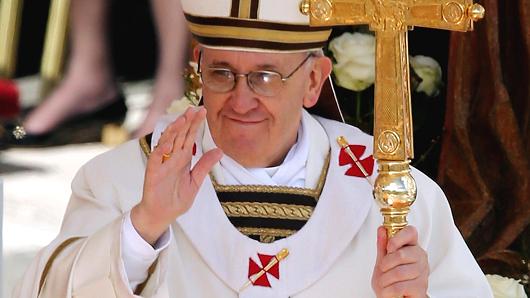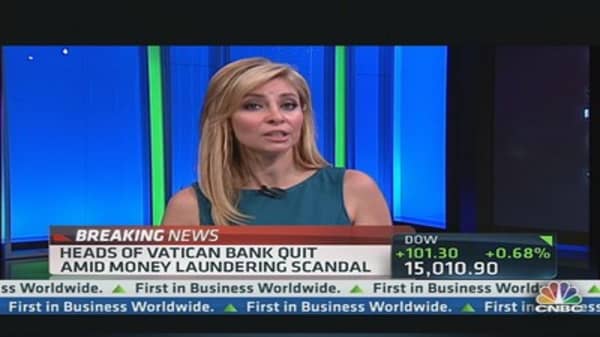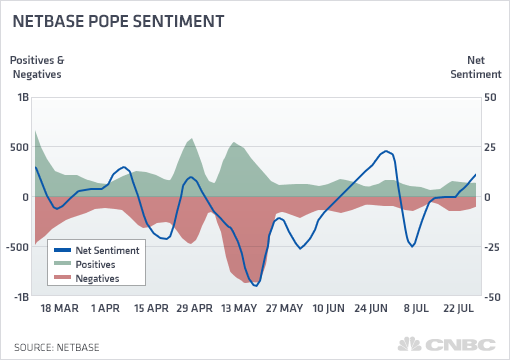Since taking over as head of the Roman Catholic Church in March, Pope Francis has made several stark comments on world economic issues: He's cited the pitfalls of capitalism, decried global income inequality and equated low-wage labor to a form of "slavery."
He's even described the financial corruption in the church he leads as a "spiritual sickness."
Analysts say Pope Francis—leader of some 1.2 billion Catholics—is not necessarily calling for the demise of free market theory. Instead, he's issuing a very strong warning to economic leaders over its future.
"Like many people he thinks capitalism won't survive unless it decreases income disparity," said George Haley, professor of marketing and international business at the University of New Haven.
"I think it's fair to say he's arguing for a more European version of capitalism going forward, especially after the Great Recession, so there's more of a safety net for people when they need it," Haley added.
"I don't think he's attacking capitalism or the wealthy, because if he did, that strategy would fail," said Joseph Pastore, a business professor at Pace University.
"But he is rightly focusing on issues of equality and justice in economics," Pastore said.
(Read more: Pope urges Brazil's youth to fight corruption, apathy)
At least some in the business community have taken notice of the pope's message.
"His comments are of high importance to me," said Rohit Arora, CEO of Biz2Credit, an online site that connects small-business owners with financing.
"The kind of issues he's talking about are too often ignored by religious and business leaders," Arora said.
Surprising as they may be, the pope's comments on global economics are in line with his personal thinking, said Mathew Schmalz, a professor of religious studies at the College of the Holy Cross.
"Being a Jesuit priest and having spent so much time in Argentina as bishop and cardinal had a great effect on him," Schmalz said. "He's seen a lot of poverty close up and raised the issue in Argentina before becoming pope."






